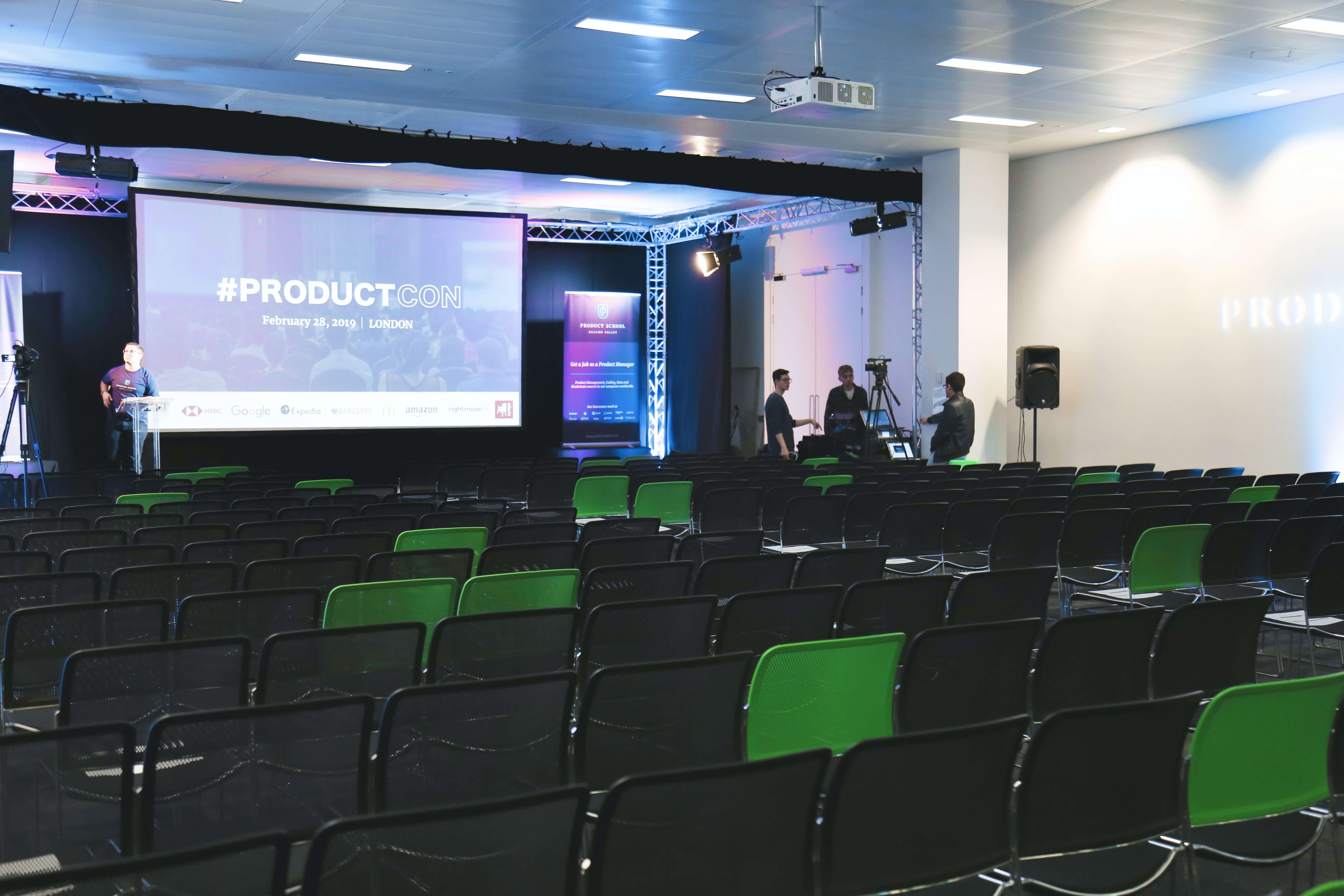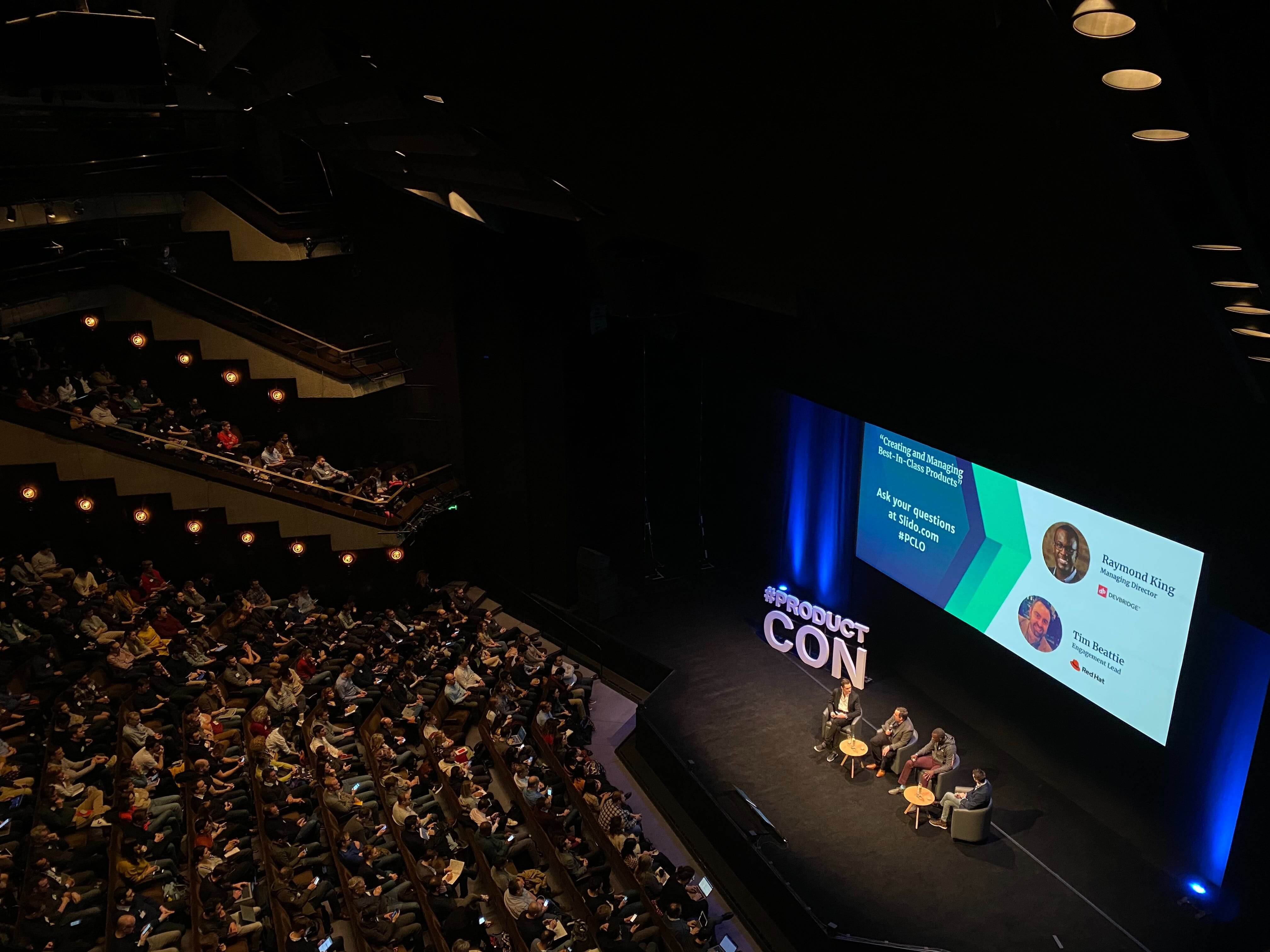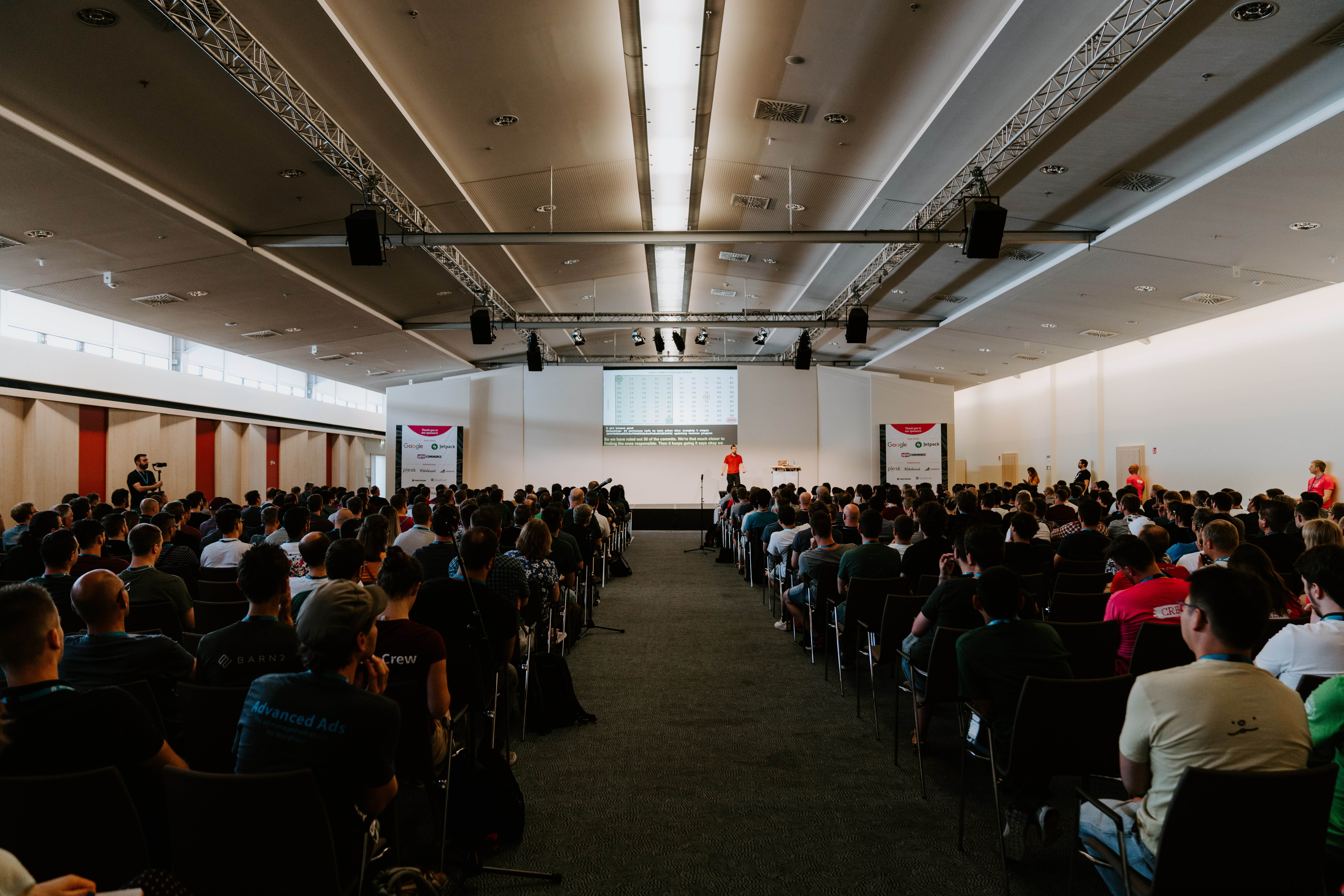Have you looked at some of the key industry facts that will influence how you create events?
In the last few years, the event industry experienced a revolution. The event industry was forced to change everything from business models and sponsorships to event technology and content delivery. 2020, for better or worse, changed everything. Maybe it will be remembered as a disastrous year but event professionals have adapted for uncertain times ahead.
ZIGnotch will continue to release research that takes the pulse of the industry, establishes benchmarks, and assists the industry in contextualizing changes and establishing trends as event professionals move forward. The following is a comprehensive list of 111 key facts for the event industry from 2019 to 2023.

Easy Navigation
ToggleGeneral Event Industry Statistics
Streaming events can reduce total climate pollution from events by 60-98%.
Social media is an important part of event marketing, but it can also be an important part of your virtual event.
58% to 67% of event organizers expect to include sustainability in their meeting plans for 2022.
Today’s event professionals tend to focus more on an AI-powered matching system. This feature allows them to connect the right attendees to the right event.
67% of event professionals worldwide include explicit language about safety and security in their meetings and events policies.
85% of all attendees prefer to attend events that use environmentally friendly practices.
Event marketing can generate sales for 79% of marketers.
Over digital advertising, email marketing, and content marketing, 41% of marketers believe that events are the most effective marketing channel.
After attending the related event, 98% of consumers are more likely to purchase the product or service.
65% of visitors and 57% of exhibitors believe that digital event technology will continue to be useful after the pandemic has ended.
Virtual event statistics
In 2021, 49% of event professionals agree that the most important aspect of a live event is engaging attendees.
85% of event planners have successfully shifted their event to virtual.
75% of attendees believe they can complete the majority of their event goals online.
43% of virtual event attendees attend the venue live, with the remaining 13% attending on demand.
The global virtual events market was worth $77.98 billion in 2019 and is expected to expand at a compound annual growth rate (CAGR) of 23.2% between 2020 and 2027.
The average event planner salary in New York City, USA is $55,707 per year.
The average salary for event planners in London, UK is £29,743.
84% of business leaders believe that parallel events (both online and in person) are critical to their company’s success.
By 2023, 39% of planners expected to recoup at least 35% of their revenue by shifting to virtual events.
70% of event planners charged for virtual events in 2022.
93% of event marketers intend to invest in virtual events in the near future.
95% of Event Planners use artificial intelligence to create a more personalized experience for the attendees.

Event Technology Statistics
75% of event professionals consider themselves comfortable or knowledgeable about virtual event technology.
The vast majority of virtual event technology providers provide or integrate with live streaming tools or platforms (92%), registration tools (86%), and mobile event apps (80%).
When it comes to live streaming, the ability to facilitate both live and pre-recorded sessions (75%) and multi-track streams (70%), are the two most common features available from event tech providers.
The vast majority (58%) of virtual tech providers provide both native apps and web-based access to the virtual event.
Nearly 32% of the remaining platforms provide web-based solutions that can be accessed via a browser, most likely on mobile devices
By default, the majority of event providers allow their attendees to participate by using any device, be it mobile, laptop, tablet, or desktop PC.
The agenda/sessions feature is the most commonly used event app feature, with 98.3% of event professionals using it, followed by the sponsors/exhibitors listing (93%) and the speakers listing (93%).
Did you know? AI-powered attendee matchmaking in event apps has increased from forty-one percent in 2019 to eighty-seven percent in 2022 for both proximity and non-proximity-based recommendations.
According to 54% of event app providers, clients interact the most with the agenda on their event apps.
Another 49% say that attendees interact the most with engagement features like gamification, live polls, any type of feedback, etc.
76% of Attendees say that additional technologies like live translations and gamification keep them engaged and happy.
Event Sponsorship Statistics
For 23% of planners, sponsorships are the main source of virtual event income.
Sponsor/exhibitor profiles (78%), analytics/reporting (77%), and banners in high-traffic areas (70%) are the top three features offered by virtual event tech providers in terms of sponsorship opportunities.
70% of event planners are looking for new networking opportunities to keep their attendees engaged.
The Hall networking opportunities were enjoyed by 97% of ZIGnotch event attendees.
99% of event professionals say the ZIGnotch platform is the only one they will use in the future.
Sponsorship packages are still dominating and 67% of all event packages are constituted of awareness and value offerings.
90% of paid events have up to 20 ticket types, compared to 80% of free events, which have only 1-2 ticket types.
The most effective strategy for event planners to find new clients is networking, said (66%) of event planners.
Almost a quarter of providers do not provide any kind of analytics to demonstrate sponsor ROI.
In 2020, 30.5% of businesses lost 75 to 90% of their revenue.
General Event Venue Statistics
Safety standards are still among the most important venue selection criteria, according to 56% of planners. On the other hand, masks are the least important, according to only 8% of event managers.
Following the cancellation of an event, only 11% of event professionals received an insurance payout from their provider, while the remaining 45% are not expecting a payout.
For 2021, mid-tier properties are the most popular venue type.
10% of negotiated hotel room blocks in 2019 were 50% more expensive than comparable accommodations on booking sites.
Hotels and motels located near the event venue are usually priced 25% less, compared to amenities offered by the organizers themselves. These are usually more affordable and offer better accommodation.
When it comes to choosing a location for their next event, 37% of planners prioritize safety above all else.
78% of event planners say that they saved 55% of their budget by switching to virtual events in 2021-22.
In the post-Covid era, planners are less interested in what destinations typically have to offer.
Less than 2% consider attractions to be the most crucial factor when choosing an event location.
59% of event planners say that virtual events are more convenient and generate more revenue than in-person events.
Event Application
The most used features on mobile devices are the ZIGnotch event feed and the event Networking hall.
86% of event apps are AI-based and include smart matching, chatbots, or facial recognition.
Chatbot availability has dropped to 16.5% from 22.3% last year.
57% of app providers offer attendees recommendations for nearby places, events, and experiences, while 65% offer personalized sessions or content recommendations.
An event app’s average maximum price is $20,000.
The majority of app developers, 76%, believe that demand for event apps is higher than it was last year.
80% of event professionals stopped using different technologies for their events, instead, they tend to use all-in-one solution applications.
65% of event app users say that push notifications keep their attention.
70& of the users say surveys keep their engagement.
55% of event planners look for features to customize their website and keep their own branding.
Event Types Statistics
Conferences and trade shows are the most common type of meeting activity in North America, accounting for 23% of all meetings.
81% of trade show attendees are buyers.
Conferences are the most popular type of event, with 62% of organizers planning them.
Corporate events, the second most popular type of event to plan, are planned by 61.2% of organizers.
Seminars and workshops are planned by 46.7% of event organizers.
Dinners and award ceremonies are planned by 40.6% of event organizers.
Focus groups, meetings, and training are planned by 27.2% of event organizers.
Trade shows are planned by 26.2% of event organizers.
14.9% of event planners plan an experiential event
Conventions and events are expected to grow by 44% between 2010 and 2023.
Event ROI statistics
The average ROI for events is between 25 and 34%.
19% of businesses are unaware of their event ROI.
67% base ROI on attendee satisfaction.
52% calculate ROI by staying within budget.
51% calculate ROI using the number of registrations.
The greatest challenge for 29% of event marketers was increasing revenue from their event strategy.
New referrals and introductions, quality and quantity of leads, deal closure, sales value, and upsell and cross-sell opportunities are the top metrics marketing companies agree are best for measuring event value.
Events statistics and social media
58% of marketers use social media to promote their events before, during, and after they take place.
40% of event organizers have a dedicated social media staff.
30% of event planners do not have someone to handle social media.
Interns are used by 14% of event planners to handle social media at events.
10% of event organizers consider outsourcing their event social media responsibilities.
52% of events receive social media engagement several times during the day.
Social media is most commonly used for pre-event engagement (89%).
Social media is used by 40% of attendees to engage them during the event.
Social media is used to receive feedback from 38% of people.
To promote their events, 50% of event planners use paid social media advertising.
87% of businesses believe that attendees share their event experiences on social media.
Social media accounts for 15% of traffic to ticketing and registration pages.
63% use influencer marketing as part of their event social strategy.
ZIGnotch event and platform facts
A platform that is simple to use for organizers and attendees.
Implemented features to decrease your time when creating events.
More than 15 different ways to monetize.
AI-powered data automation tools that provide concise reports on your attendees’ activities and preferences.
Easy-to-build 365-day communities.
AI-powered Intent suggestions will assist you in creating future events based on the behaviors of attendees.
A content monitoring tool that detects inappropriate content automatically.
Ticketing with ZERO commission fees.
Ability to connect to any social media, and share content.
Integrations with Eventbrite, WordPress, Stripe, etc.
Ability to sell products and services.
Matchmaking systems allow attendees to meet and interact with others who share their interests.
1:1 meetings through attendees, inhibitors, and organizers.
Specialized logos for your sponsors on the events, and profiles.
Packages, business insights, and content for the event professionals, and exhibitors.
Feed section where attendees can upload pictures, brochures, videos, and create articles.
AI-powered filters and suggestions for the attendees to give them the session or products they wanna see or participate in.
All-in-one platform that will exclude other technologies.
Sources: PCMA, Skift, Amex, G2, Marketwatch, BLS, Events Council, Quadrant2Design, Allied Market Research, IBIS, PRNewswire, FinancesOnline, Exploding Topics, EventManagerBlog.
The event industry will never stop
Are you capable of keeping up? As new technologies, trends, and innovations emerge, the event industry will continue to grow in power and influence in the business world. These statistics demonstrate that events are an important part of any business strategy. By carefully considering each one, you can make your own conclusion about the direction you’d like you (or your company) to take. Remember, everything created for Internet purposes is (and will be) 95% of the market in the future. Take your action today.
Find out here to find out why you should use end-to-end event management software and how it can help you stabilize your finances and increase your revenue by over 100% in the first year alone.




